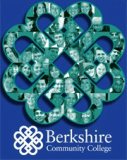We viewed a presentation on Feb 27 by Terri Manning, Assoc VP for Institutional Research at Central Piedmont CC in Charlotte, NC. Some characteristics of the Millennial Generation she discussed in an interview on the League for Innovation iStream website are:
- The Millennial Generation is a group of 81 million children born between 1982 and 2002 and they are currently turning education on its ear. This generation is different in many ways and is a product of many changes that have occurred in our society over the past 25 years.
- They have been at the center of the customer service movement, the self-esteem movement, health and safety education, the gaming revolution, and are mega-communicators.
- They have spent time in groups since they were babies, have been raised on technology and take “diversity” to a whole new level.
- They will negotiate with anyone, talk to adults like peers and have had well-educated, “deliberate” parents.
- K-12 education has been more responsive to their individual needs, their teachers have engaged them in active learning and varied their activities throughout the day.
- When they enroll in higher education, they are often shocked and dissatisfied with the way education is delivered. The technology gap dividing this generation is one based on income. Children growing up in families with educated parents who typically have higher incomes are being provided with up-to-date technology and software. While these children also have gaming systems, iPods, and cell phones, their parents have taught them how to use technology to do work for them. By the time they leave high school, they have mastered Word and PowerPoint, created their own websites, and know how to use technology to their advantage.
- Children from poorer families or families with less education have had less experience with technology. It has mostly been for recreational purposes. They have had less exposure except for the limited time they have spent in computer labs in school. When they enter college (if they do), English Composition becomes a mastery of word processing class for them plus mastering the English content. The digital divide is often contributing to an ability divide in this generation.

Permalink
This presentation at BCC’s CTL was very provocative. Just afterwards, I learned about a workshop on methods language teachers can use for this population of Millennial learners to be held at the NECTFL (Northeast Conference on the Teaching of Foreign Languages)in NYC in March. I signed right up!
Thanks, Dori, for bringing this material to the CTL.